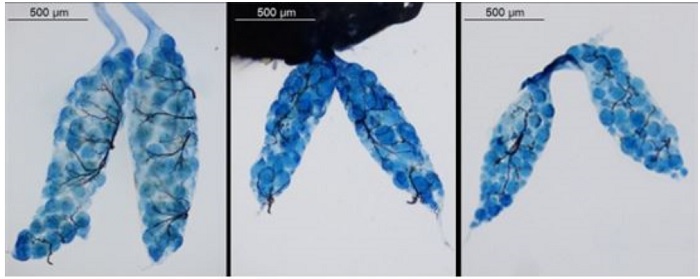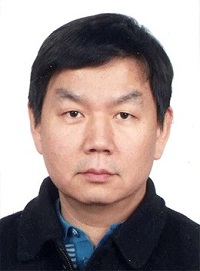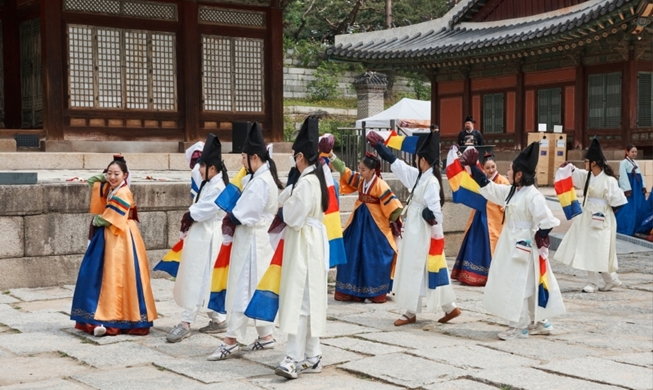-
 Korea.net's 24-hour YouTube channel
Korea.net's 24-hour YouTube channel- NEWS FOCUS
- ABOUT KOREA
- EVENTS
- RESOURCES
- GOVERNMENT
- ABOUT US
A team of researchers has identified plant compounds that can kill targeted pests, leaving the rest of the plant unharmed.
Comprised of Dr. Oh Hyun-woo of the Korea Research Institute for Bioscience and Biotechnology (KRIBB) and Professors Sim Sang-wun and Je Yun-ho of Seoul National University, the research team identified plant compounds that can serve as a Juvenile Hormone Antagonists (JHA). They succeeded in isolating such substances from plants and this is expected to lead to the development of insecticides that are safe for both humans and the environment.

The juvenile hormone controls an insects' metamorphosis, the process of emerging from an egg and shedding its skin on a regular basis. It also controls reproduction in female adults. Controlling the JHAs interrupt hormone activation and prevent insects from going through a normal metamorphosis and reproducing normally.
Previously, this type of research was done by observing abnormal developments and deaths in targeted cells and insects. This time, however, the new technology used a "yeast/ two-hybrid" system to transform the mosquito's junior hormone receptor. This made it easier to see whether or not the JHAs can affect the receptor. Also, using this process allowed the scientists to save both time and money.
Located inside the insects' body, the juvenile hormone receptor is a protein that mediates juvenile hormone action. It's only specific to insects, and the newly created extracts are known to give no harm to humans.
 Dr. Oh Hyun-woo (pictured) says, "The research saved an enormous amount of observation time and subsequent expenses. We found that the JHA isolated from a very small amount of extracts, and the compounds can affect specific insects."
Dr. Oh Hyun-woo (pictured) says, "The research saved an enormous amount of observation time and subsequent expenses. We found that the JHA isolated from a very small amount of extracts, and the compounds can affect specific insects."
"We will continue to study, to identify joint evolutions of insects and plants, and will find new pesticides, fitting for a wider range of insects," he said.
Research results were published online in the January 27 edition of The Proceedings of the National Academy of Sciences, a U.S. journal for the National Academy of Sciences.
By Lee Seung-ah
Korea.net Staff Writer
slee27@korea.kr
Comprised of Dr. Oh Hyun-woo of the Korea Research Institute for Bioscience and Biotechnology (KRIBB) and Professors Sim Sang-wun and Je Yun-ho of Seoul National University, the research team identified plant compounds that can serve as a Juvenile Hormone Antagonists (JHA). They succeeded in isolating such substances from plants and this is expected to lead to the development of insecticides that are safe for both humans and the environment.

Pictured (left) is the ovarium of a normal mosquito. Pictured (center, right) are abnormally developed ovaria due to changes in the JHAs.
The juvenile hormone controls an insects' metamorphosis, the process of emerging from an egg and shedding its skin on a regular basis. It also controls reproduction in female adults. Controlling the JHAs interrupt hormone activation and prevent insects from going through a normal metamorphosis and reproducing normally.
Previously, this type of research was done by observing abnormal developments and deaths in targeted cells and insects. This time, however, the new technology used a "yeast/ two-hybrid" system to transform the mosquito's junior hormone receptor. This made it easier to see whether or not the JHAs can affect the receptor. Also, using this process allowed the scientists to save both time and money.
Located inside the insects' body, the juvenile hormone receptor is a protein that mediates juvenile hormone action. It's only specific to insects, and the newly created extracts are known to give no harm to humans.

"We will continue to study, to identify joint evolutions of insects and plants, and will find new pesticides, fitting for a wider range of insects," he said.
Research results were published online in the January 27 edition of The Proceedings of the National Academy of Sciences, a U.S. journal for the National Academy of Sciences.
By Lee Seung-ah
Korea.net Staff Writer
slee27@korea.kr













